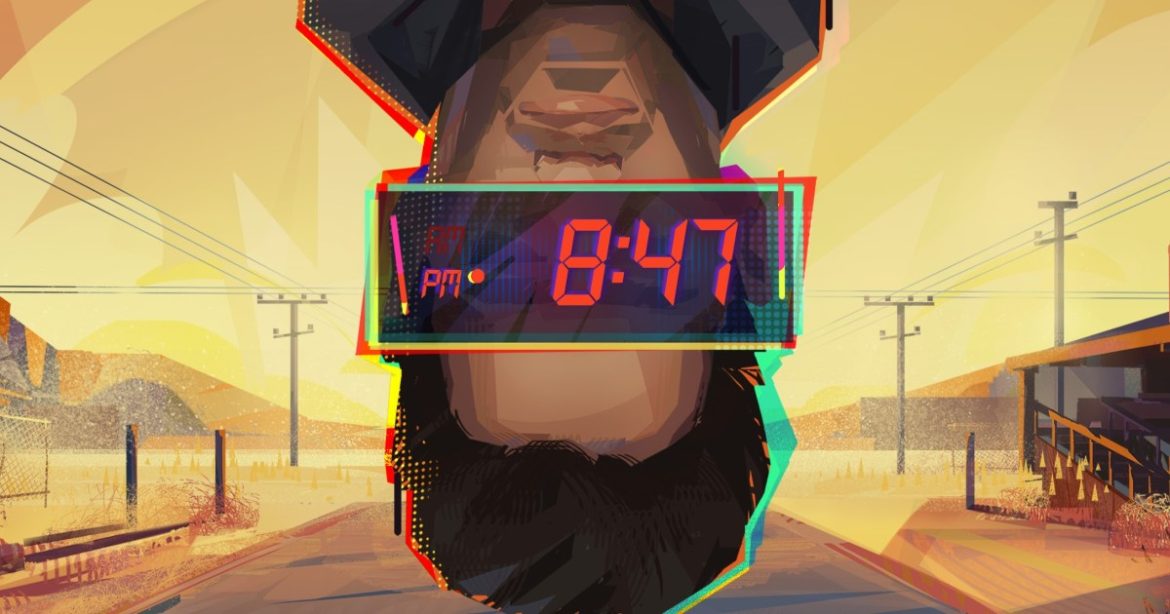Time loops are a perfect fit for video games. This interactive medium is inherently repetitious, and certain games, such as roguelikes, are intentionally designed to be played over and over. It’s natural to take that further and bring that repetition in play as a clear time loop. Deathloop and The Legend of Zelda: Majora’s Mask are some of the most famous examples of games with time loops, but indies like Twelve Minutes and The Forgotten City are equally as experimental with that idea. Rue Valley is the latest game built around a time loop and it does so by way of Disco Elysium.
Disco Elysium showed how an RPG that prioritizes dialogue, internal dialogue, and the emotional well-being of the player character can be just as engaging as one with combat. Emotion Spark Studio and Owlcat Games‘ Rue Valley takes that same idea and applies it to a depressed man stuck in a time loop at a motel in the middle of a desert.
Embracing the time loop
Rue Valley takes place over 47 minutes. The game begins with the main character in a therapy session at a motel at around 8 p.m. As the sun sets, players can explore the motel and surrounding areas and interact with the different characters there as time passes. The dialogue and the player’s inner monologue are presented similarly to how they are in Disco Elysium, although Rue Valley sports more of a comic book aesthetic.
It does not play out in real time, but is based on the player’s fairly mundane actions. In a preview event attended by Digital Trends, Creative Director Marko Smiljanić explained that one of the main goals of Rue Valley is to “present mundane stuff that we experience every day in real life as something meaningful in a video game way,” like getting out of bed. “If in some RPGs you find a better sword, in this game, the equivalent of that would be getting out of bed,” Smiljanić says.

After 47 minutes worth of time passes, the sky around Rue Valley turns bright red and the timeline resets, and players begin their loop anew in that therapy session. Rue Valley is an ever-unfolding mystery box as players learn more about their situation with each passing loop and gain more insight into the surrounding characters and era. There isn’t a preset number of loops needed to complete the game. Smiljanić stresses that game length relies heavily on what the players choose to do or what their stats let them do.
While there’s a lot of choice-driven dialogue in Rue Valley, that’s not its only RPG-driven system. Before the game begins, players must spend a certain number of “personality points” to create their character. Rather than increasing a stat like strength, these points bring the player’s personality toward different emotional extremes across decisional, social, and emotional axes. Through these, players can shape their character to be impulsive or calculated, introverted or extraverted, and sensitive or indifferent.
Depending on the player’s personality, the dialogue and gameplay options will differ. There are also sometimes “stat checks,” which require acuity in a certain emotional state to be successful. In-game events will also apply status effects to the player and further impact those emotional stats and dialogue options. These status effects aren’t your typical RPG ones like poison or burning; they’re things like “total lack of motivation.”

These are all very subtle systems. Rue Valley isn’t a very bombastic game; it’s more of a slice-of-life RPG about depression with a supernatural time loop as a hook. It may be low-key, but what I’ve played so far is fascinating. While the depth and intrigue of its RPG systems certainly present themselves in this early look, time loop stories typically don’t make a ton of sense until you can see them through to the end.
Thankfully, Rue Valley’s narrative is intriguing, so this seems to be another example of why time loops work so well in video games. Those intrigued by games with looping structures should keep this RPG on their radar.




